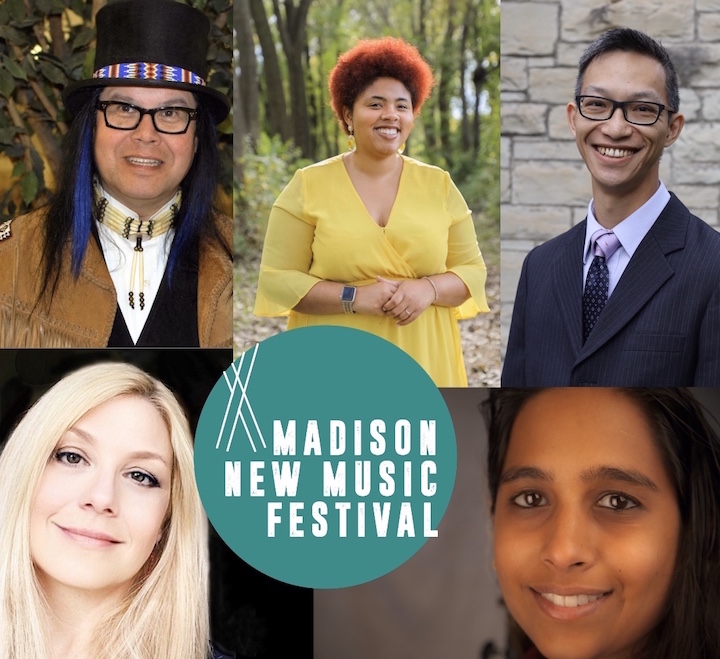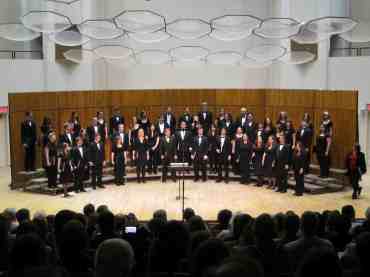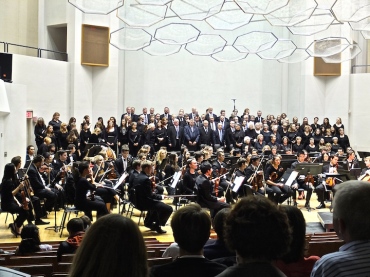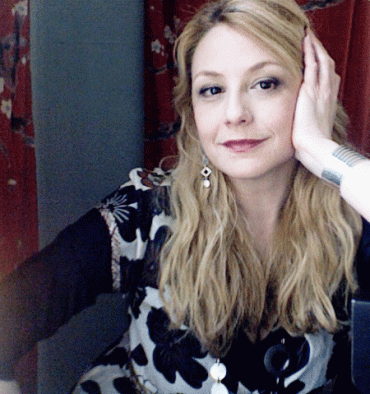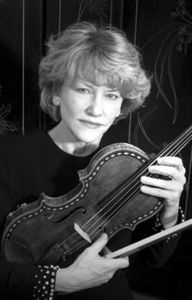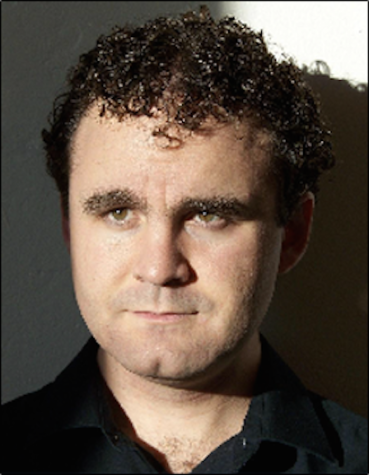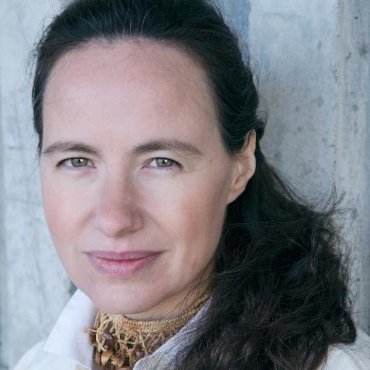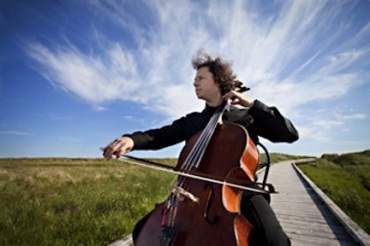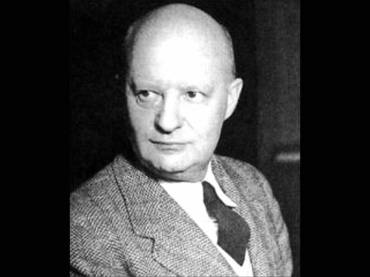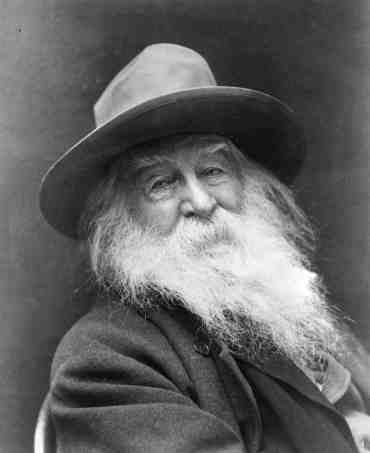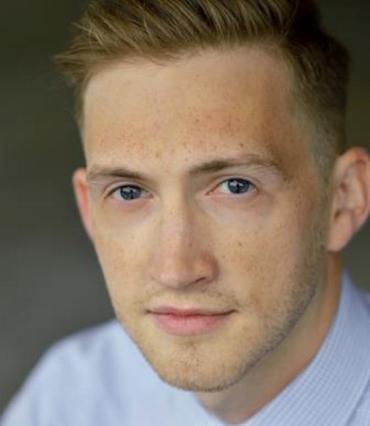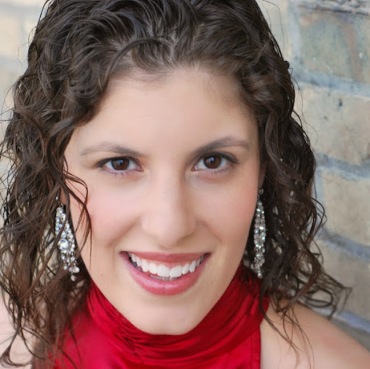The Well-Tempered Ear
The eighth annual UW Schubertiade is this Sunday afternoon. It features a FREE online retrospective of the past seven years plus a new four-hand piano performance
Leave a Comment
PLEASE HELP THE EAR. IF YOU LIKE A CERTAIN BLOG POST, SPREAD THE WORD. FORWARD A LINK TO IT OR, SHARE IT or TAG IT (not just “Like” it) ON FACEBOOK. Performers can use the extra exposure to draw potential audience members to an event. And you might even attract new readers and subscribers to the blog.
By Jacob Stockinger
The University of Wisconsin has posted the following announcement:
For the eighth consecutive year, the University of Wisconsin-Madison’s Mead Witter School of Music will present its annual Schubertiade — a special concert celebrating the music of Franz Schubert (below).
Traditionally these concerts have been held around the composer’s birthday. This year’s concert will in fact occur on his birthday — this Sunday, Jan. 31, at 3-4:30 p.m. CST. The pre-recorded premiere is at: https://youtu.be/7sshhKiFPAg
You can also use the link to prepare for the concert before or during the concert. You will find the program with song titles, the original German texts and English translation, and biographies of the performers by simply clicking on “SHOW MORE” on the YouTube website and follow the links to PDFs.
BECAUSE THERE ARE NO COPYRIGHT ISSUES, ACCORDING TO UW OFFICIALS, THE POST SHOULD BE UP AND AVAILABLE INDEFINITELY AFTER ITS PREMIERE.
As in past years, founders and performers Martha Fischer (below left), professor of piano and head of the collaborative piano program at UW-Madison, and her husband Bill Lutes (below right), an independent piano teacher, and UW emeritus artist-in-residence, will host the program.
These concerts have been presented in the sprit of the first Schubertiades (below, in a painting by Julius Schmid) that took place during the composer’s lifetime (1797-1828) in the homes of his friends and fellow artists, poets and fans.
These were social as well as musical occasions with Schubert himself presiding at the piano, giving his audience a chance to hear his latest songs, piano duets and chamber music, as well as pieces that had already become favorites.
This year’s Schubertiade will be different in response to the restrictions imposed by the Covid-19 pandemic. It will be an online look back — or Rückblick — at past concerts, with songs chosen from performances that have been preserved in the audio and video archive.
The featured performers will include faculty members, students and alumni from the Mead Witter School of Music, along with special guests.
In addition, pianists Fischer and Lutes will give a “new” performance recorded for this occasion of the great Fantasie in F minor for piano duet. (In the YouTube video at the bottom, you can hear that work, performed by Dutch brothers Lucas and Arthur Jussen and recorded live in Seoul, South Korea.)
The songs have been chosen to reflect themes that were not only relevant to Schubert and his circle, but also to all of us in the midst of this challenging time: hope for a brighter future; the need for connection with others; remembrance of happier times; and the consolation to be found in nature.
Schubert left a vast and precious legacy of beauty — an enormous output of music that he composed in his short lifetime.
In a sense, each time his music is performed and heard, it is a journey from the past to our own time, the sounds speaking to us today as vividly and consolingly as they did when they were created 200 years ago.
Performers
Martha Fischer and Bill Lutes, pianists
Alumni:
Jamie-Rose Guarrine, soprano (below, in a photo by Peter Konerko)
Emily Birsan, soprano
Michael Roemer, baritone
Jennifer D’Agostino, soprano
Daniel O’Dea, tenor
Wesley Dunnagan, tenor
Sarah Brailey (alumna and current DMA student)
Sara Guttenberg
Guests:
Marie McManama, soprano
Cheryl Bensman-Rowe, mezzo-soprano
Faculty:
Mimmi Fulmer, soprano
Paul Rowe, baritone (below)
Julia Rottmayer, soprano
Staff
David Alcorn, videographer, editor, etc.
Katrin Talbot, images for audio only tracks
Tags: #ArcticCircle, #ArthurJussen, #ArtSong, #AustrianComposer, #BassBaritone, #BillLutes, #BlogPost, #BlogPosting, #CentralTime, #ChamberMusic, #CherylBensman-Rowe, #CollaborativePianist, #CollaborativePIano, #CoronavirusPandemic, #COVID-19, #DanielO'Dea, #DavidAlcorn, #EmilyBirsan, #EnglishTranslation, #FacebookPost, #FacebookPosting, #FranzSchubert, #GuestArtist, #husband-and-wife, #JacobStockinger, #Jamie-RoseGuarrine, #JenniferD'Agostino, #JuliaRottmayer, #JussenBrothers, #KatrinTalbot, #LiveMusic, #LiveRecording, #LookBack, #LucasJussen, #MarthaFischer, #MeadWitterSchoolofMusic, #Mezzo-sopranoSinger, #MichaelRoemer, #MimmiFulmer, #MusicProfessor, #OnlineConcert, #PaulRowe, #SaraGuttenberg, #SarahBrailey, #SeoulSouthKorea, #SopranoSinger, #SouthEastAsia, #SouthKorea, #SpecialGuest, #Sundayafternoon, #TenorSinger, #TheEar, #TheNetherlands, #TheUW, #UniversityofWisconsin-Madison, #UWSchubertiade, #VirtualConcert, #VocalMusic, #WesleyDunnagan, #Wife-and-Husband, #YouTubeChannel, #YouTubevideo, alumni, announcement, archive, art song, Arthur Jussen, artist, artist-in-residence, Arts, Asia, asian, audience, Audio, Austria, bass, bass-baritone, before, Bill Lutes, bio, biography, birthday, blog, brighter, celebrate, Central Time, challenging, Chamber music, Cheryl Bensman Rowe, chosen, circle, Classical music, collaborative, composer, Concert, connections, consolation, copyright, coronavirus, Daniel O'Dea, David Alcorn, different, duet, Dutch, editor, emeritus, Emily Birsan, English, Europe, European, Facebook, Facebook post, Facebook posting, fans, Fantasie, fantasy, favorite, forward, found, founder, Franz Schubert, friends, future, German, Germany, good-natured, great, guest artists, happier, Home, hope, host, images, indefinitely, independent, issue, Jacob Stockinger, Jamie-Rose Guarrine, Jennifer D'Agostino, Julia Rottmayer, Jussen, Jussen brothers, Katrin Talbot, Korea, lieder, lifetime, like, link, live music, Live Recording, look back, Lucas Jussen, Madison, Martha Fischer, Mead Witter School of Music, Mezzo-soprano, Michael Roemer, Mimmi Fulmer, Music, music professor, nature, occasion, occur, online, original, other, painting, pandemic, past, Paul Rowe, performance, performer, photographer, photographs, Pianist, Piano, piano duets, pieces, poets, post, postih, pre-recorded, premiere, prepare, present, preserved, professor, program, reflect, remembrance, response, restrictions, retrospective, Sara Guttenberg, Sarah Brailey, Schubert, Schubertiade, Seoul, share, sing, singers, Singing, social, song, songs, soprano, South Korea, Southeast Asia, special, special guest, spirit, students, Sunday afternoon, tag, Teacher, tenor, text, The Ear, the Netherlands, theme, time, trabslatio, tradition, United States, University of Wisconsin-Madison School of Music, University of Wisconsin–Madison, UW, UW-Madison, video, Vienna, virtual, vocal music, Website, Wesley Dunnagan, Wisconsin, year, YouTube
The Madison New Music Festival launches the Wisconsin Composers Project with a virtual online concert this Friday night, Sept. 25
Leave a Comment
PLEASE HELP THE EAR. IF YOU LIKE A CERTAIN BLOG POST, SPREAD THE WORD. FORWARD A LINK TO IT OR, SHARE IT or TAG IT (not just “Like” it) ON FACEBOOK. Performers can use the extra exposure to draw potential audience members to an event. And you might even attract new readers and subscribers to the blog.
By Jacob Stockinger
The Ear has received the following announcement to post:
The Madison New Music Festival is pleased to announce the launch of the Wisconsin Composers Project.
Both a community resource and annual series, the project consists of a database and a virtual concert meant to increase composers’ visibility and encourage local curators and performers to collaborate with their neighbors.
We invite all Wisconsin-affiliated composers to sign up to be included in the database on our website: https://madisonnewmusic.org/aboutwcp
Please join us for the live streaming event of the Wisconsin Composers Project Concert on this Friday night, Sept. 25, at 7:30 p.m. CDT on our website at https://madisonnewmusic.org and enjoy new music from all over Wisconsin from the comfort and safety of your home.
The pre-recorded concert will profile five Wisconsin-based composers (below) and performances of their works, one of which refers to the pandemic quarantine.
Audience members will hear directly from the composers about their music and influences, and enjoy the diversity of the Wisconsin musical community.
Featured composers and their works include:
Brent Michael Davids (above, top left): In Wisconsin Woods, performed by the composer. (In the YouTube video at the bottom, you can hear the UW-Whitewater Chamber Singers and the Medicine Bear Singers perform “Sanctus: Singing for Power” from Davids’ Requiem for America.)
Jerry Hui (above, top right), a UW-Madison graduate who now teaches at UW-Stout: Quarantine Canzonets, performed by soprano Jennifer D’Agostino and baritone Michael Roemer.
Laura Schwendinger (above, bottom left), an internationally recognized and prize-winning composer and UW-Madison professor: All the Pretty Little Horses, performed by cellist Trace Johnson.
Asha Srinivasan (above, top center): Dyadic Affinities, performed by tubist Tom Curry.
Lawren Brianna Ware (above, bottom right): Borealis, performed by the composer.
The suggested donation to stream this concert is $15 per person.
For more information, please visit our website at madisonnewmusic.org or find us on Facebook (@Madison New Music Festival) or Instagram (@madisonnewmusic).
Tags: #AllthePrettyLittleHorses, #AshaSrinivasan, #BaritoneSinger, #BlogPost, #BlogPosting, #BrentMichaelDavids, #CelloMusic, #ChamberMusic, #ChoralMusic, #CityofMadison, #CoronavirusPandemic, #COVID-19, #FacebookPost, #FacebookPosting, #FacultyMember, #Fridaynight, #HomeWebsite, #InstagramPost, #JacobStockinger, #JenniferD'Agostino, #JerryHui, #LauraSchwendinger, #LawrenBriannaWare, #LiveStreaming, #LivingComposer, #MadisonNewMusicFestival, #MadisonWisconsin, #MeadWitterSchoolofMusic, #MedicineBearSingers, #MichaelRoemer, #Musicfaculty, #NativeAmerican, #NativeAmericanmusic, #NewMusic, #Prize-Winning, #RequiemforAmerica, #Self-Isolation, #SignUp, #SopranoSinger, #StateOfWisconsin, #TheEar, #TheUW, #TomCurry, #TraceJohnson, #TubaMusic, #UniversityofWisconsin-Madison, #UW-WhitewaterChamberSingers, #VirtualConcert, #VocalMusic, #WisconsinComposersProject, #YouTubevideo, affiliation, affinity, all, America, announcement, annual, Arts, Asha Srinivasan, audience, baritone, blog, Borealis, Brent Michael Davids, canzonet, canzonetta, cellist, Cello, cello music, celo, Chamber music, choral music, Classical music, collaborate, community, composer, Composition, Concert, coronavirus, curators, databse, diverse, diversity, donation, dyad, encourage, enjoy, Facebook, faculty, faculty member, featured, forward, Friday, graduate, home website, horse, includ, include, increase, information, Instagram, international, invite, isolation, Jacob Stockinger, Jennifer D'Agostino, Jerry Hui, launch, Laura Schwendinger, Lawren Brianna Ware, like, link, little, live streaming, live-stream, livestream, Living composer, local, Madison, Madison New Music Festival, Mead Witter School of Music, medicine, Medicine Bear Singers, Michael Roemer, more, Music, music faculty, musical, Native American, Native American music, neighbors, New Music, night, online, Orchestra, pandemic, performer, performers, post, posting, power, pre-recorded, pretty, professor, profile, recognized, Requiem, Requiem for America, resource, Sanctus, series, share, sign-up, singers, Singing, soprano, stream, subscriber, suggested, tag, The Ear, Tom Curry, Trace Johnson, Tuba, tubist, United States, University of Wisconsin-Madison School of Music, University of Wisconsin–Madison, UW, UW-Madison, UW-Stout, UW-Whitewater, UW-Whitewater Chamber Singers, virtual, visibility, vocal music, Website, Wisconsin, Wisconsin Composers Project, Woods, works, YouTube
Classical music: The UW Schubertiade last Sunday afternoon explored the influence of Beethoven on Schubert with insight and beauty
3 Comments
PLEASE HELP THE EAR. IF YOU LIKE A CERTAIN BLOG POST, SPREAD THE WORD. FORWARD A LINK TO IT OR, SHARE IT or TAG IT (not just “Like” it) ON FACEBOOK. Performers can use the extra exposure to draw potential audience members to an event. And you might even attract new readers and subscribers to the blog.
ALERT: In early editions of my last post, I mistakenly said that the UW Choral Union and the UW Symphony Orchestra will perform the Verdi Requiem on May 25 and 26. The correct dates are APRIL 25 and 26. The Ear regrets the error.
By Jacob Stockinger
One of the most informative and enjoyable events of the Beethoven Year – 2020 is the 250th anniversary of the composer’s birth – came early.
It took place last Sunday afternoon in the Collins Recital Hall of the new Hamel Music Center at the UW-Madison.
It was the seventh annual Schubertiade, and its theme was “Schubert and Beethoven: Influences and Homages.” A classic contrast-and-compare examination of two musical giants who lived and worked in Vienna in the early 19th century, the concert took place for almost three hours before a packed house. (Schubert is below top, Beethoven below middle, and the sold-out audience below bottom)
The annual event is organized by co-founders and co-directors UW piano professor Martha Fisher and her pianist husband Bill Lutes (below, greeting the crowd), who also perform frequently, especially as outstandingly sensitive and subtle accompanists.
They make the event, with audience members sitting onstage, look easy and informal. But it takes a lot of hard work.
The two sure know how to choose talent. As usual, all the singers and instrumentalists – UW alumni and faculty members (below) — proved very capable. The concert cohered with consistency.
Nonetheless, The Ear heard highlights worth singling out.
Baritone Michael Roemer (below) sang exceptionally in “An die ferne Geliebte” (To the Distant Beloved) by Beethoven (1770-1827). His voice brought to mind the young Dietrich Fischer-Dieskau in the inviting tone and direct delivery of the first song cycle ever composed. It was also the one that inspired the younger Schubert (1797-1828) to compose his own song cycles, and you could hear why.
Soprano Jamie Rose Guarrine (below right), accompanied by Bill Lutes and cellist Karl Knapp (below center), brought warmth, ease and confidence to the lyrical beauty of “Auf dem Strom” (On the River).
Tenor Daniel O’Dea (below) showed how Schubert’s setting of Friedrich Schiller’s “Ode to Joy” – the same Romantic poem made famous in Beethoven’s Ninth Symphony “Choral” – ended up much more lighthearted than the more familiar, serious and intense symphonic version.
Martha Fischer and Bill Lutes, who also sang as well as narrated and accompanied, showed complete blending and tightness in Schubert’s first published composition: “Eight Variations on a French Song.” It was for piano, four-hands – a sociable genre that Schubert favored and wrote a lot of.
Soprano Jennifer D’Agostino (below) sang Schubert’s song “Elysium” in which it is unclear whether it is a pastiche or a parody of Beethoven, who remained a mentor until Schubert died at 31. Could that ambiguity point to Schubert’s maturing sense of himself and his own art as compared to Beethoven’s?
One year after Beethoven’s death – Schubert was a pallbearer — Schubert put on his only formal public concert of his own work. That was when he premiered his Piano Trio No. 2, the bravura last movement of which was played by Bill Lutes with cellist Parry Karp and first violinist David Perry (below), of the UW’s Pro Arte Quartet.
Then all four members of the Pro Arte Quartet (below) – with violist Sally Chisholm and second violinist Suzanne Beia – played the last two movements of Beethoven’s late String Quartet in C-sharp Minor, Op. 131, the work that Schubert requested to hear performed as he lay on his death bed in his brother’s Vienna apartment.
Of course there were other moments that pleased and instructed. There was a set of four songs – one coupling sung by mezzo-soprano Allisanne Apple (below) — in which the same texts were set to music by both Beethoven and Schubert.
We got to hear Beethoven’s final song, “Abendlied unterm gestirnten Himmel” (Evening Song Beneath the Starry Firmament).
Then there was the heart-wrenching “Nachthymne” (Hymn to the Night) by Schubert, again beautifully performed by Jamie Rose Guarrine. (You can hear “Hymn to the Night,” sung by Elly Ameling, in the YouTube video at the bottom.)
So in the end, what were the big lessons, the takeaways from this year’s Schubertiade?
One lesson is that for all his more familiar symphonies and concertos, his string quartets and piano trios, his piano sonatas and his sonatas for cello and violin, Beethoven was also a much more accomplished song composer than the public generally knows.
But for The Ear, the biggest lesson of all is that despite Beethoven’s deep influence, Schubert retained his own special voice, a voice full of unforgettable melodies and harmonies, of lyricism and empathy.
And using a mentor to find, refine and retain one’s own identity is the highest homage any student can pay to a teacher.
Tags: #19thCentury, #AllisanneApple, #BaritoneSinger, #BeethovenYear, #BillLutes, #BlogPost, #BlogPosting, #ChamberMusic, #ChoralMusic, #ChoralSymphony, #CollinsRecitalHall, #Contrast-and-Compare, #DanceMovement, #DanielO'Dea, #DavidPerry, #DeathBed, #DietrichFischer-Dieskau, #DietrichFischerDieskau, #EllyAmeling, #FacebookPost, #FacebookPosting, #FacultyMember, #FranzSchubert, #FriedrichSchiller, #GermanRomanticism, #GiuseppeVerdi, #HamelMusicCenter, #Hard Work, #HardWork, #husband-and-wife, #InstrumentalMusic, #InstrumentalPlayer, #JacobStockinger, #JamieRoseGuarrine, #JenniferD'Agostino, #KarlKnapp, #LudwigVanBeethoven, #LyricalMusic, #MarthaFischer, #MeadWitterSchoolofMusic, #Mezzo-sopranoSinger, #MichaelRoemer, #MusicalGenre, #OdetoJoy, #OrchestralMusic, #ParryKarp, #PianoConcero, #PianoSonata, #PianoTrio, #ProArteQuartet, #SallyChisholm, #SongCycle, #SopranoSinger, #StringQuartet, #Sundayafternoon, #SuzanneBeia, #TenorSinger, #TheEar, #ThemeAndVariations, #UniversityofWisconsin-Madison, #UWChoralUnion, #UWSchubertiade, #UWSymphonyOrchestra, #ViennaAustria, #Wife-and-Husband, #YouTubevideo, 19th century, accompanist, age, Allisanne Apple, alumni, ambiguity, annual, annversary, April, Art, Arts, audience, beauty, Beethoven, Beethoven Year, beloved, big, Bill Lutes, birth, blending, blog, bravura, brother, cellist, Cello, Chamber music, choose, choral music, Choral Symphony, Choral Union, classic, Classical music, cohere, Collins Recital Hall, compare, composer, Concert, concerto, confidence, consistency, contrast, coupling, cycle, Daniel O'Dea, David Perry, death, death bed, delivery, die, Dietrich Fischer-Dieskau, direct, director, early, ease, easy, edition, ego, Elly Ameling, enjoyable, error, evening, event, examination, Facebook, faculty member, familar, famous, favor, final, find, firmament, first, Fischer-Dieskau, formal, forward, founder, four-hands, France, Franz Schubert, French, Friedrich Schiller, genre, giant, Giuseppe Verdi, greet, Hamel Music Center, high, highlight, himself, homage, hours, House, husband, hymn, identity, influence, informal, informative, insight, inspire, instruct, intense, invite, inviting, Jacob Stockinger, Jamie-Rose Guarrine, Jennifer D'Agostino, Karl Knapp, know, late, lesson, lighthearted, like, link, live, look, Love, Ludwig van Beethoven, lyrical, Madison, Martha Fischer, mature, May, Mead Witter School of Music, mentor, Mezzo-soprano, Michael Roemer, mind, mistake, moment, moments, movement, Music, musical, narrate, night, Ode to Joy, old, older, onstage, Orchestra, packed, pallbearer, parody, Parry Karp, pastiche, performer, Pianist, Piano, Piano concerto, Piano sonata, Piano Trio, please, poem, post, posting, Pro Arte Quartet, public, publish, recall, refine, request, Requiem, retain, river, Romantic, Romanticism, Sally Chisholm, Schiller, Schubert, Schubertiade, second, sense, sensitive, serious, share, show, sing, singer, single, sociable, Sonata, song, song cycle, soprano, starry, String quartet, Student, subtle, Sunday afternoon, sung, Suzanne Beia, symphonic, symphony, tag, takeaway, talent, Teacher, tenor, text, The Ear, theme and variations, tightness, tone, unclear, United States, University of Wisconsin-Madison School of Music, University of Wisconsin–Madison, UW, UW Choral Union, UW Symphony Orchestra, UW-Madison, variations, Verdi, version, Vienna, Viola, Violin, Violin concerto, violinist, vocal, vocal music, voice, warmth, wife, Wisconsin, work, write, year, young, younger, YouTube
Classical music: The UW Concert Choir, Choral Union and Symphony Orchestra will perform world premieres, local premieres and new music in three concerts this weekend
1 Comment
By Jacob Stockinger
The Ear has received the following messages from UW composer Laura Schwendinger and from Beverly Taylor, the director of choral activities at the University of Wisconsin-Madison School of Music who is also the assistant conductor and chorus director of the Madison Symphony Orchestra:
Writes conductor Beverly Taylor: This is a busy and musically fascinating weekend for me coming up.
On Friday night at 8 p.m. in Mills Hall, there is a special concert by the Concert Choir (below) on the subject of Art Born of Tragedy, with the acclaimed guest cellist Matt Haimovitz.
Tickets are $15, $5 for students. For more information about tickets as well as the performers and the program, go to:
http://www.music.wisc.edu/event/uw-concert-choir-4-matt-haimovitz/
Then in Mills Hall at 8 p.m. on Saturday night and at 7:30 p.m. on Sunday night, there are two performances of When Lilacs Last in the Dooryard Bloomed by the 20th-century composer Paul Hindemith by the UW Choral Union and the UW Symphony Orchestra (below). It is a work that to my knowledge has never been performed in Madison.
Tickets are $15, $8 for students. For more information about obtaining tickets and about the concert, visit:
http://www.music.wisc.edu/event/uw-choral-union-uw-symphony-orchestra/
Here is more information about the events:
CONCERT CHOIR
The Concert Choir performance explores in music of several centuries the theme of “Art Born of Tragedy” — how outside events can be the spark that causes the creation of works of substance that range from the gentle and comforting to rage and despair.
We will sing music from the Renaissance: part of the Thomas Tallis’ “Lamentations of Jeremiah (on the ancient destruction of Jerusalem),” and a John Wilbye madrigal “Draw on Sweet Night for a Broken Heart.”
We will present three works from modern composers: one is a world premiere by the prize-winning composer Laura Schwendinger (below top), my colleague at the UW-Madison, for viola — played by Sally Chisholm (below bottom) of the UW Pro Arte Quartet — and wordless chorus. It is called “For Paris” in memory of those killed in the Paris terrorist bombings of 2015.
(Adds composer Laura Schwendinger: “The viola starts this short work by referencing only for a moment the merest idea of a ‘musette song,’ one that might be heard on an evening in a Paris cafe. The choir enters with a simple refrain that repeats again and again, each time with a little more material, as an unanswered question of sorts. Each time the viola reenters the texture, the music becomes more pressing in a poignant manner, until it arrives in its highest register, only to resolve with the choir as it quietly acquiesces in the knowledge that the answer may not be known.”)
We will present a short “O vos omnes” (O you who pass by) written by Pennsylvania composer Joseph Gregorio (below), composed in memory of a Chinese girl hit by a car and left to die.
The third piece is a reprise of “Après moi, le deluge” by Luna Pearl Woolf (below top), which we premiered and recorded 11 years ago. We are lucky to have back the wonderful internationally known cellist Matt Haimovitz (below bottom), who premiered this work with it. The text, written by poet Eleanor Wilner, mixes the Noah story with the Hurricane Katrina disaster.
The term “Après moi, le deluge” is a term attributed to Louis XV or his mistress Madame Pompadour, and means “after me the flood” — referring either to the chaos after his reign, or that what happens afterword bears no importance for him.
The work has four different moods like a symphony — with strong themes at the start and cries for help, followed by the slow movement despair, a scherzo-like depiction of havoc, and a final movement that is like a New Orleans funeral, upbeat and Dixieland.
Throughout the program we also present spirituals that depict loneliness or salvation from trouble.
UW CHORAL UNION
In certain ways, When Lilacs Last in the Dooryard Bloomed resembles the Concert Choir concert in that it contains a number of moods and styles as well, under a dark title. The subtitle of the work is “a Requiem for Those We Love.”
It was commissioned by the great choral and orchestral conductor Robert Shaw as a tribute to President Franklin Delano Roosevelt on his death and the train ride that carried him from Warm Springs, Georgia, to Washington, D.C.
The text that Paul Hindemith (below top) chose is by Walt Whitman (below bottom), who wrote his poem on the death of Abraham Lincoln, and the funeral train from Washington, D.C., to Springfield, Illinois.
Whitman’s grief is combined with pride and joy in the countryside that the train traverses, and his feelings find an outlet in the thrush that sings out its song. His sense of a sustaining universe is a contrast to his depiction of the despair and ravages of the Civil War.
Hindemith’s calling the work a “Requiem for Those We Love,” puts it, like the Brahms’ “German” Requiem, into a class of non-liturgical requiems — that is, the texts are not those that are part of the Catholic Mass for the Dead, but are other selected texts of joy or remembrance.
Hindemith’s style can loosely be described as tonal that veers away into dissonance and returns again to the home key. The Prelude and opening movement are dark; the solo songs of baritone (James Held, below top) and mezzo-soprano (Jennifer D’Agostino, below bottom) are marvelous; the fugue on the glories of America is glorious and other sections are soft and tender. (NOTE: You can hear the orchestral prelude of the work, with composer Paul Hindemith conducting the New York Philharmonic, in the YouTube video at the bottom.)
The work is hard for both chorus and orchestra, but well worth the effort. The piece is about 80 minutes long and will be performed without interruption. It’s a work I’ve always wanted to do, having heard it performed at Tanglewood many years ago. I’m delighted to have the chance now.
Tags: 20th-century, Art, Arts, auto, baritone, Beverly Taylor, born, cafe, car, Catholic, Chamber music, chaos, China, Chinese, Choir, choral music, Choral Union, chorus, Civil War, Classical music, comfort, composer, Concert Choir, conductor, D.C., dead, despair, dissonance, Dixieland, Early music, Eleanor Wilner, FDR, Franklin Delano Roosevelt, fugue, funeral, gentle, Georgia, grief, heart, Hurricane, Hurricane Katrina, ILLINOIS, Jacob Stockinger, James Held, Jennifer D'Agostino, Jeremiah, Jerusalem, John Wilbye, Joseph Gregorio, Joy, Kartrina, lamentation, Laura Schwendinger, Lincoln, liturgical, liturgical music, Louis XV, Love, Madame Pompadour, Madison, Madison Symphony Orchestra, madrigal, mass, Matt Haimovitz, Mezzo-soprano, musette, Music, New Music, New Orleans, New York Philharmonic, Orchestra, Paris, Paul Hindemith, Pennsylvania, poet, Prelude, premiere, President, Pro Arte Quartet, rage, ravages, reign, remembrance, Renaissance, Requiem, Requiem Mass, Robert Shaw, Scherzo, song, Springfield, symphony, symphony orchestra, Tanglewood, Tanglewood Festival, terror, terrorist, Thomas Tallis, tonal, tragedy, train, United States, universe, University of Wisconsin-Madison School of Music, University of Wisconsin–Madison, UW, Viola, Violin, vocal music, Walt Whitman, Warm Springs, Washington, When Lilacs Last in the Dooryard Bloomed, Wisconsin, world premiere, YouTube
- May 2024
- April 2024
- March 2024
- February 2024
- January 2024
- December 2023
- November 2023
- October 2023
- September 2023
- August 2023
- July 2023
- June 2023
- May 2023
- April 2023
- March 2023
- February 2023
- January 2023
- December 2022
- October 2022
- September 2022
- June 2022
- May 2022
- April 2022
- March 2022
- July 2021
- June 2021
- May 2021
- April 2021
- March 2021
- February 2021
- January 2021
- December 2020
- November 2020
- October 2020
- September 2020
- August 2020
- July 2020
- June 2020
- May 2020
- April 2020
- March 2020
- February 2020
- January 2020
- December 2019
- November 2019
- October 2019
- September 2019
- August 2019
- July 2019
- June 2019
- May 2019
- April 2019
- March 2019
- February 2019
- January 2019
- December 2018
- November 2018
- October 2018
- September 2018
- August 2018
- July 2018
- June 2018
- May 2018
- April 2018
- March 2018
- February 2018
- January 2018
- December 2017
- November 2017
- October 2017
- September 2017
- August 2017
- July 2017
- June 2017
- May 2017
- April 2017
- March 2017
- February 2017
- January 2017
- December 2016
- November 2016
- October 2016
- September 2016
- August 2016
- July 2016
- June 2016
- May 2016
- April 2016
- March 2016
- February 2016
- January 2016
- December 2015
- November 2015
- October 2015
- September 2015
- August 2015
- July 2015
- June 2015
- May 2015
- April 2015
- March 2015
- February 2015
- January 2015
- December 2014
- November 2014
- October 2014
- September 2014
- August 2014
- July 2014
- June 2014
- May 2014
- April 2014
- March 2014
- February 2014
- January 2014
- December 2013
- November 2013
- October 2013
- September 2013
- August 2013
- July 2013
- June 2013
- May 2013
- April 2013
- March 2013
- February 2013
- January 2013
- December 2012
- November 2012
- October 2012
- September 2012
- August 2012
- July 2012
- June 2012
- May 2012
- April 2012
- March 2012
- February 2012
- January 2012
- December 2011
- November 2011
- October 2011
- September 2011
- August 2011
- July 2011
- June 2011
- May 2011
- April 2011
- March 2011
- February 2011
- January 2011
- December 2010
- November 2010
- October 2010
- September 2010
- August 2010
- July 2010
- June 2010
- May 2010
- April 2010
- March 2010
- February 2010
- January 2010
- December 2009
- November 2009
- October 2009
- September 2009
- August 2009
Archives
- 2,491,481 hits
Blog Stats
Recent Comments
| Brian Jefferies on Classical music: A major reass… | |
| welltemperedear on What made Beethoven sick and… | |
| rlhess5d5b7e5dff on What made Beethoven sick and… | |
| welltemperedear on Beethoven’s Ninth turns 200… | |
| Robert Graebner on Beethoven’s Ninth turns 200… |
Tags
#BlogPost #BlogPosting #ChamberMusic #FacebookPost #FacebookPosting #MeadWitterSchoolofMusic #TheEar #UniversityofWisconsin-Madison #YouTubevideo Arts audience Bach Baroque Beethoven blog Cello Chamber music choral music Classical music Compact Disc composer Concert concerto conductor Early music Facebook forward Franz Schubert George Frideric Handel Jacob Stockinger Johannes Brahms Johann Sebastian Bach John DeMain like link Ludwig van Beethoven Madison Madison Opera Madison Symphony Orchestra Mead Witter School of Music Mozart Music New Music New York City NPR opera Orchestra Overture Center performer Pianist Piano post posting program share singer Sonata song soprano String quartet Student symphony tag The Ear United States University of Wisconsin-Madison School of Music University of Wisconsin–Madison Viola Violin vocal music Wisconsin Wisconsin Chamber Orchestra wisconsin public radio Wolfgang Amadeus Mozart YouTube




